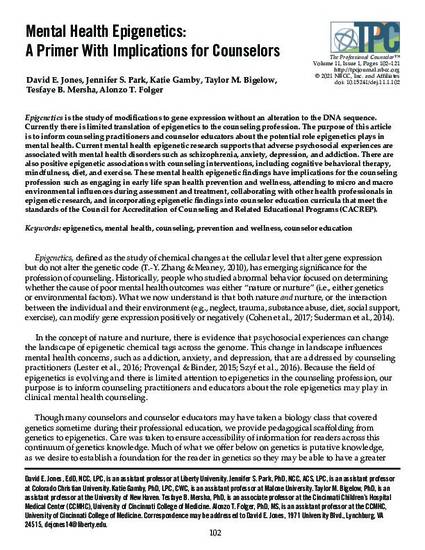
Article
Mental Health Epigenetics: A Primer With Implications for Counselors
The Professional Counselor
(2021)
Abstract
Epigenetics is the study of modifications to gene expression without an alteration to the DNA sequence. Currently there is limited translation of epigenetics to the counseling profession. The purpose of this article is to inform counseling practitioners and counselor educators about the potential role epigenetics plays in mental health. Current mental health epigenetic research supports that adverse psychosocial experiences are associated with mental health disorders such as schizophrenia, anxiety, depression, and addiction. There are also positive epigenetic associations with counseling interventions, including cognitive behavioral therapy, mindfulness, diet, and exercise. These mental health epigenetic findings have implications for the counseling profession such as engaging in early life span health prevention and wellness, attending to micro and macro environmental influences during assessment and treatment, collaborating with other health professionals in epigenetic research, and incorporating epigenetic findings into counselor education curricula that meet the standards of the Council for Accreditation of Counseling and Related Educational Programs (CACREP).
Keywords
- epigenetics,
- mental health,
- counseling,
- prevention and wellness,
- counselor educatio
Disciplines
Publication Date
Spring March 26, 2021
DOI
10.15241/dej.11.1.102
Citation Information
David Jones, Jennifer S Park, Katie Gamby, Taylor M. Bigelow, et al.. "Mental Health Epigenetics: A Primer With Implications for Counselors" The Professional Counselor Vol. 11 Iss. 1 (2021) p. 102 - 121 Available at: http://works.bepress.com/david-jones3/13/
